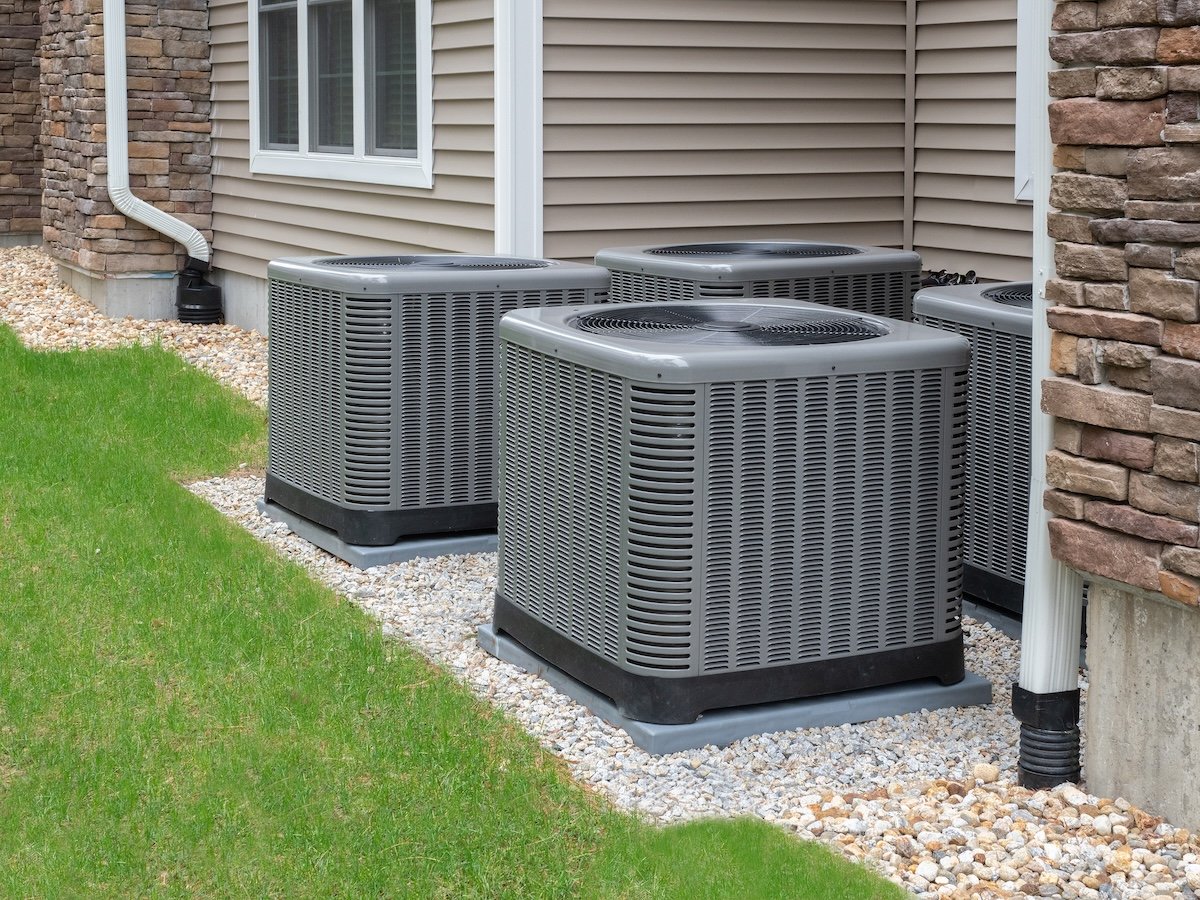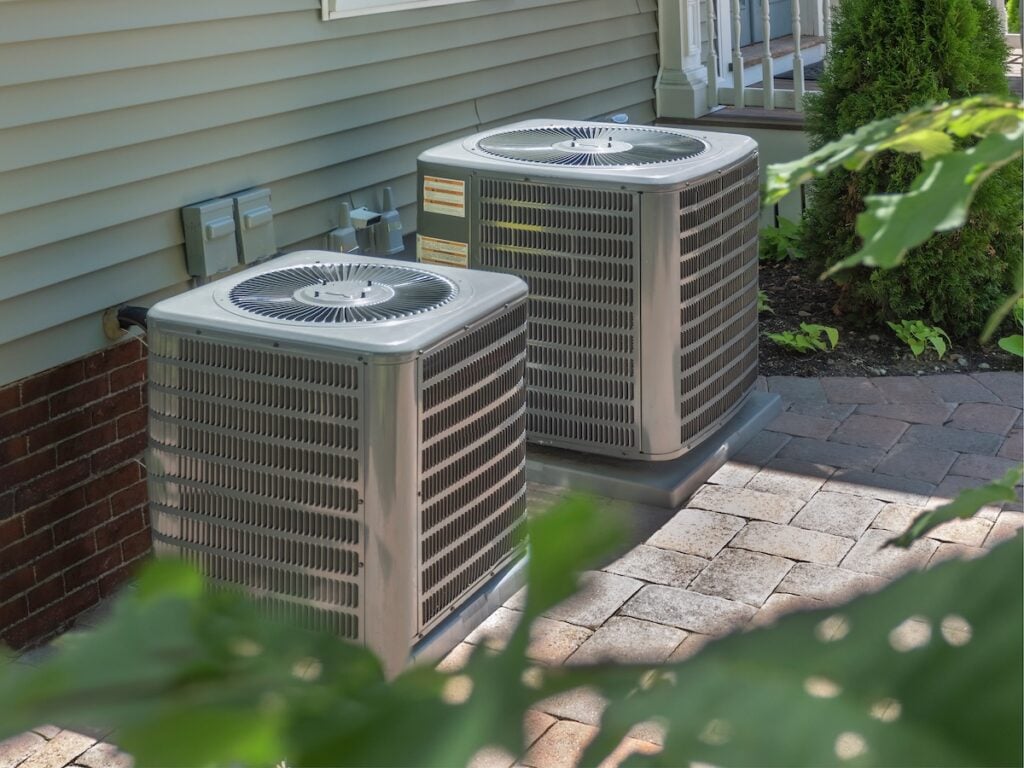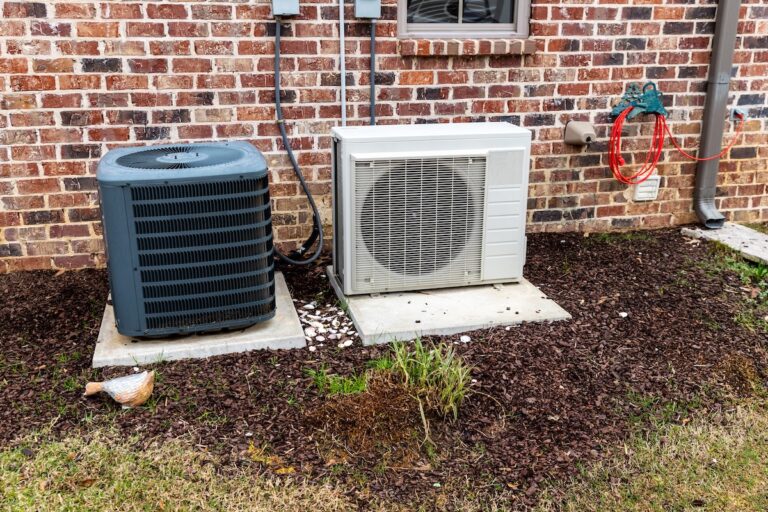
When your air conditioning system starts making unusual noises or struggling to cool your home, you might wonder if it’s time for a replacement. Understanding how long do AC units last can help you plan for future expenses and recognize when repairs might be more costly than replacement.
Air conditioning systems typically last between 10-20 years, depending on the type of unit, maintenance habits, and environmental factors. However, this lifespan can vary significantly based on several key factors that we’ll explore in this comprehensive guide.
In this article, we’ll cover:
- Different types of AC units and their expected lifespans
- Key factors that affect how long your system will last
- Signs that indicate it’s time for replacement
- Tips to extend your AC unit’s life
🔎 Different Types of AC Units and Their Lifespans

Not all air conditioning systems are created equal. The type of unit you have plays a major role in determining how long it will serve your home.
Central Air Conditioning Systems
Central air conditioning systems are the most common type found in homes across the Twin Cities. These systems typically cool entire homes and are built to handle this demanding workload. The outdoor condenser unit usually needs replacement first, while the indoor air handler may last longer. However, after about 15 years, many homeowners notice more frequent repairs and reduced energy efficiency.
- Lifespan: 15-20 years with proper maintenance
Window Air Conditioners
Window units are more affordable upfront but have a shorter lifespan than central systems. Their compact design makes them more susceptible to mechanical failures, and constant exposure to weather elements can accelerate wear and tear. Despite this, lower replacement costs make them a practical choice for cooling individual rooms.
- Lifespan: 8-12 years
Ductless Mini-Split Systems
Ductless mini-split systems are highly efficient and have fewer mechanical components, which contributes to their extended longevity. The outdoor unit often outlasts the indoor units, and many homeowners appreciate that individual indoor units can be replaced without affecting the entire system.
- Lifespan: 15-20 years or more
Portable Air Conditioners
Portable AC units offer flexibility but have the shortest lifespan among all types. Frequent movement and setup can cause wear on components, and they work harder to cool spaces due to lack of permanent installation and proper insulation. They’re best for short-term or occasional use rather than continuous operation.
- Lifespan: 5-10 years
👉 7 Factors That Affect AC Unit Lifespan

Several key factors determine how long your air conditioning system will last. Understanding these can help you maximize your unit’s life and performance.
1. Quality of Installation
Professional installation significantly impacts your AC unit’s lifespan. Improperly installed systems work harder to maintain comfortable temperatures, leading to premature wear. Incorrect refrigerant levels, poor ductwork connections, and inadequate electrical work can all shorten your system’s life.
A qualified HVAC technician ensures your system is sized correctly for your home and installed according to manufacturer specifications. This proper installation can add years to your unit’s life.
2. Regular Maintenance Schedule
Consistent maintenance is the most important factor in extending your AC unit’s lifespan. Systems that receive annual tune-ups typically last 3-5 years longer than neglected units.
Regular maintenance includes cleaning coils, checking refrigerant levels, inspecting electrical connections, and replacing filters. These preventive measures help your system run efficiently and catch potential problems before they become major repairs.
3. Filter Replacement Frequency
Air filters protect your AC system from dust, debris, and other contaminants. Clogged filters force your system to work harder, reducing efficiency and shortening its lifespan.
Most filters should be replaced every 1-3 months, depending on your home’s air quality and filter type. Homes with pets or family members with allergies may need more frequent filter changes.
4. Climate and Environmental Conditions
Minneapolis’s extreme temperature variations put extra stress on AC systems. Units that run continuously during hot summers or face harsh winter conditions may have shorter lifespans.
Environmental factors like salt air, industrial pollution, and excessive dust can also accelerate wear. Homes near construction sites or busy roads may need more frequent maintenance to combat these challenges.
5. Usage Patterns
How you use your AC system affects its longevity. Systems that run constantly at very low temperatures work harder and may fail sooner. Setting your thermostat to reasonable temperatures and using programmable settings can extend your unit’s life.
Frequently adjusting temperatures throughout the day causes more wear than maintaining consistent settings. Consider using ceiling fans to improve comfort while allowing higher thermostat settings.
6. Quality of the Unit
Higher-quality AC units with better components typically last longer than budget models. While premium units cost more upfront, they often provide better reliability and longer service life.
Look for units with good warranties, energy-efficient ratings, and positive reviews from other homeowners. Investing in quality can save money over time through fewer repairs and longer lifespan.
7. Ductwork Condition
The condition of your home’s ductwork significantly impacts your AC system’s performance and lifespan. Leaky or poorly insulated ducts force your system to work harder to maintain comfortable temperatures.
Damaged ductwork can reduce efficiency by 20-30%, causing your AC unit to cycle more frequently and wear out faster. Regular duct inspections and sealing can help extend your system’s life.
⚠️ Signs Your AC Unit Needs Replacement

Recognizing when your AC unit is nearing the end of its life can help you plan for replacement before a complete breakdown occurs.
Frequent Repairs
If you’re calling for AC repairs multiple times per year, it may be more cost-effective to replace your system. The general rule is that if repair costs exceed 50% of a new unit’s cost, replacement is the better choice.
Keep track of repair expenses over the past few years. Systems requiring frequent repairs often have underlying issues that will continue to cause problems.
Rising Energy Bills
Older AC units lose efficiency over time, leading to higher energy bills. If your cooling costs have increased significantly without changes in usage patterns, your system may be working harder due to age and wear.
Compare your energy bills from the same months in previous years. A sudden spike in costs often indicates your AC system is struggling to maintain performance.
Inconsistent Cooling
If some rooms in your home are too hot while others are too cold, your AC system may be failing. This inconsistency often indicates problems with the blower motor, ductwork, or refrigerant levels.
Poor airflow or weak air coming from vents can also signal that your system is nearing replacement time. These issues often worsen over time and become more expensive to repair.
Strange Noises or Odors
Unusual sounds like grinding, squealing, or banging indicate mechanical problems that may require expensive repairs. Similarly, strange odors from your AC system can signal electrical issues or mold growth.
While some noises can be repaired, persistent or loud sounds often indicate major component failures that make replacement more economical.
💡 Tips to Extend Your AC Unit’s Life
Taking proactive steps can significantly extend your air conditioning system’s lifespan and improve its performance.
Schedule Annual Professional Maintenance
Professional tune-ups are essential for maximizing your AC unit’s life. HVAC technicians can identify potential problems, clean critical components, and ensure your system operates efficiently.
Annual maintenance typically includes refrigerant level checks, electrical connection inspections, and thorough cleaning of coils and components. This preventive care can prevent major breakdowns and extend your system’s life.
Change Filters Regularly
Replacing air filters is the simplest way to protect your AC system. Clean filters improve airflow, reduce strain on your system, and maintain better indoor air quality.
Set reminders to check filters monthly and replace them as needed. During peak cooling season, you may need to replace filters more frequently due to increased usage.
Keep the Outdoor Unit Clean
Your outdoor condenser unit needs adequate airflow to function properly. Remove debris, leaves, and vegetation from around the unit regularly. Maintain at least two feet of clearance on all sides.
Gently clean the outdoor coils with a garden hose to remove dirt and debris. Avoid using high-pressure water, which can damage the delicate fins.
Use Programmable Thermostats
Programmable thermostats reduce wear on your AC system by maintaining consistent temperatures and avoiding unnecessary cycling. Set temperatures higher when you’re away from home to reduce system runtime.
Smart thermostats can learn your schedule and adjust temperatures automatically, optimizing comfort while minimizing system wear.
Address Repairs Promptly
Small problems can become major issues if left unaddressed. Strange noises, reduced cooling, or unusual odors should be investigated by a professional promptly.
Early intervention can prevent minor repairs from becoming expensive replacements. Regular monitoring of your system’s performance helps catch problems early.
👨🔧 Trust Thelen Mechanical for Your AC Needs
At Thelen Plumbing, Heating, and Air, we know how important it is to get the most out of your AC unit’s lifespan while keeping your home comfortable year-round. With our experienced technicians, transparent pricing, and commitment to quality, we’re the team you can trust for all your HVAC needs.
From routine maintenance to repairs and system replacements, we’re here to provide reliable solutions tailored to your home and budget. Ready to keep your AC running at its best? Contact us today to schedule a maintenance appointment or system evaluation and let us help you stay cool and comfortable for years to come.
Unlock Our Limited-Time Deals!
Take advantage of our offers on AC tune-ups, new installs, repairs, and more.
We Can’t Wait to Help Your Home!
"*" indicates required fields





